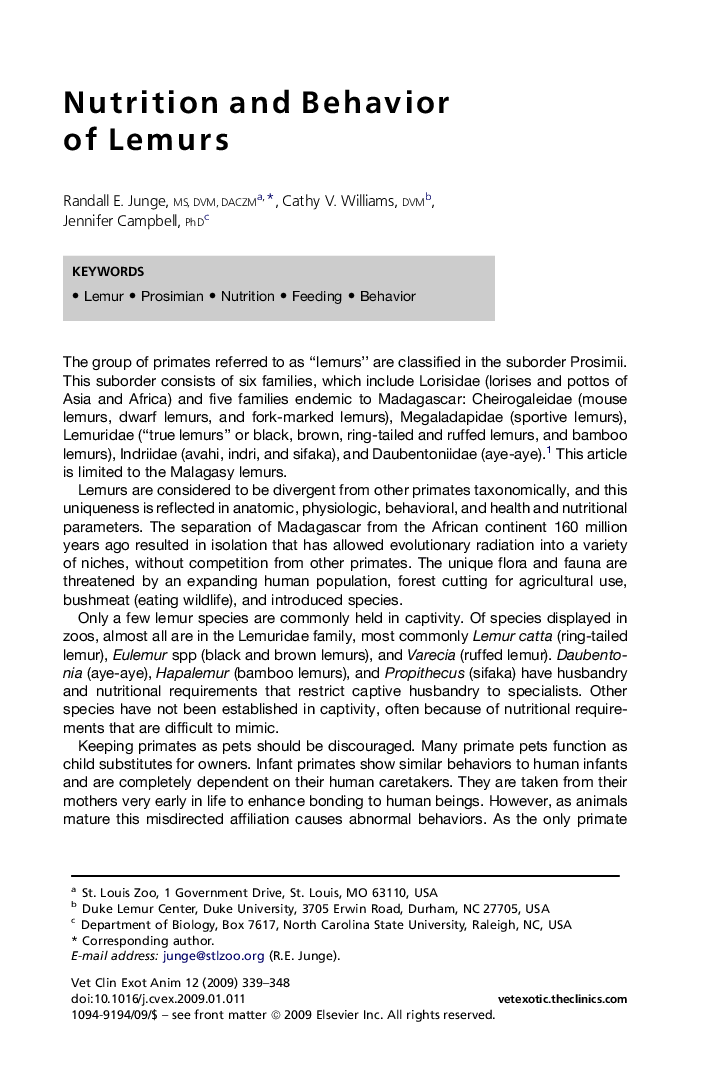| Article ID | Journal | Published Year | Pages | File Type |
|---|---|---|---|---|
| 2413323 | Veterinary Clinics of North America: Exotic Animal Practice | 2009 | 10 Pages |
Abstract
Attention to nutritional and behavioral factors is important for appropriate care of lemurs in captivity. Although only a few species are commonly held in captivity, differences between them are important. Knowledge of feeding ecology and natural diet guide nutrition guidelines, as well as management and prevention of common nutrition-related disorders, including obesity, diabetes, and iron-storage disease. Behavioral characteristics that influence captive management are related to social organization, reproductive behavior, territoriality, and infant care. Housing animals in appropriate social groupings in adequately complex environments reduces abnormal behaviors, and addition of enrichment activities and operant conditioning encourages normal behaviors.
Related Topics
Health Sciences
Veterinary Science and Veterinary Medicine
Veterinary Medicine
Authors
Randall E. MS, DVM, DACZM, Cathy âV. DVM, Jennifer PhD,
